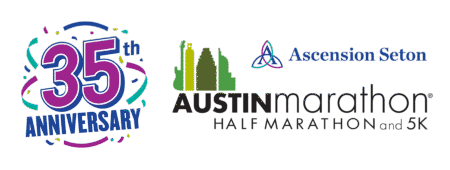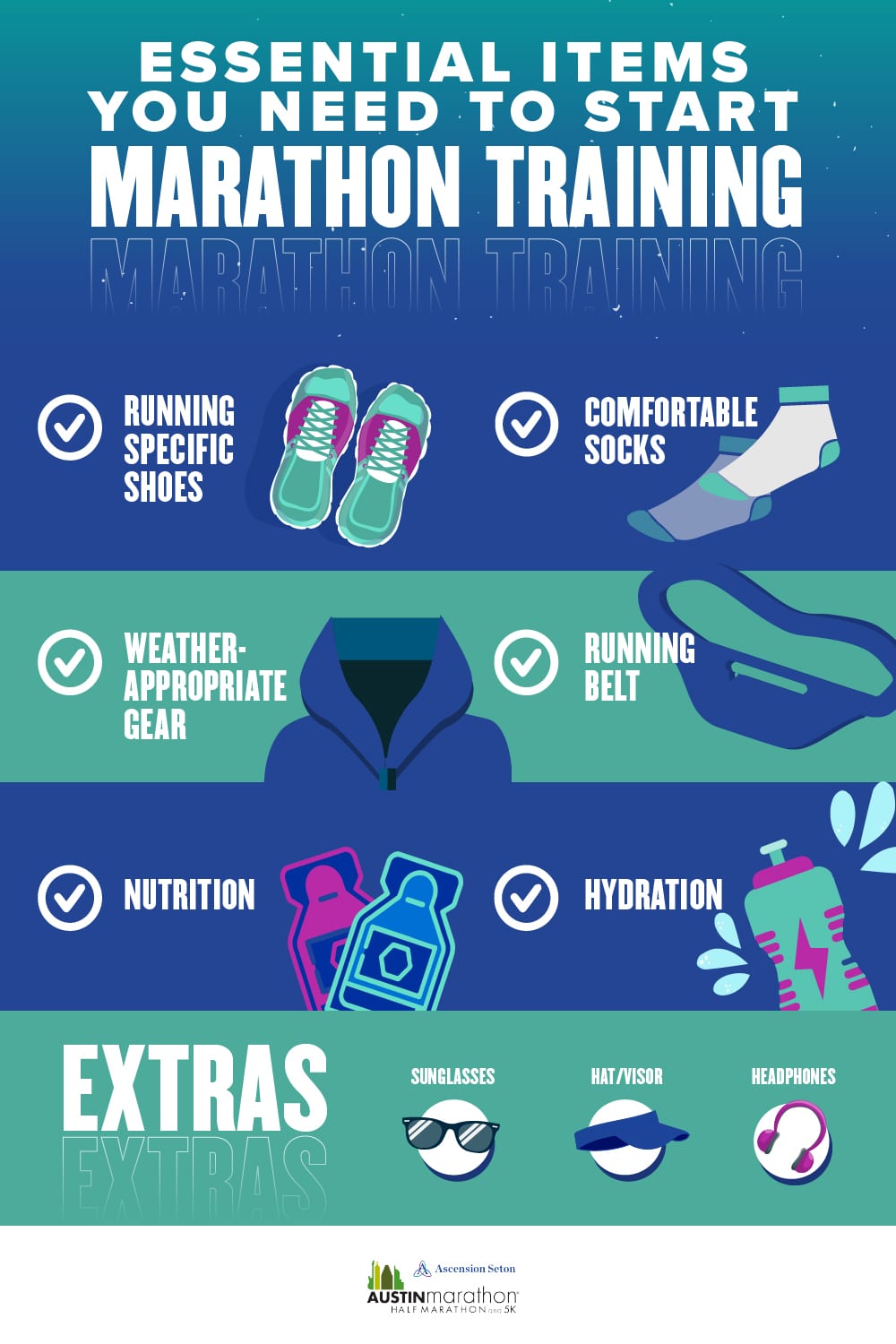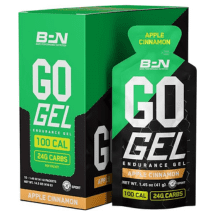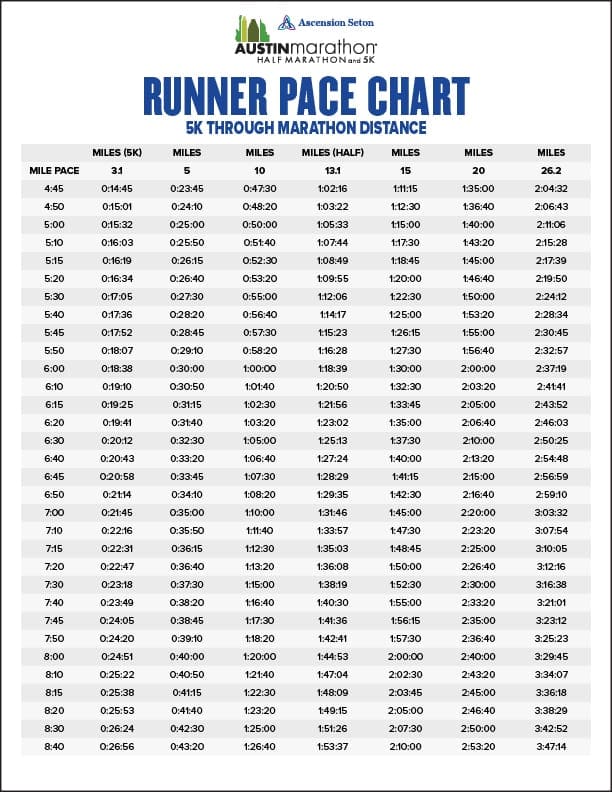7 Important Items You Need to Start Marathon Training
Start marathon training on the right foot with these 7 marathon training essential items
Training for the Austin Marathon is an exciting journey, but it also requires smart preparation to ensure you’re ready to tackle the race. With the right gear, you can train more effectively, stay comfortable, and perform your best on race day. Whether you’re new to marathons or an experienced runner, these seven essential items will help you cross the finish line strong.
1. Running-Specific Shoes
Your feet are the foundation of your running, so it’s crucial to invest in a pair of high-quality, running-specific shoes. Proper shoes help reduce the risk of injury, provide support for your stride, and offer the necessary cushioning for long-distance runs. Everyone’s foot structure and running style are unique, so it’s important to find shoes that suit you specifically.
Pro Tip: Visit our friends at Fleet Feet Austin for a professional shoe fitting. Their staff uses 3D foot scanning and gait analysis to find the perfect pair for you. Getting professionally fitted helps ensure your shoes are not only comfortable but also offer the right support for long training runs and race day. Plus, breaking in your shoes well before race day can prevent blisters and discomfort.
2. Comfortable, Moisture-Wicking Socks
The right socks can make all the difference in preventing blisters and keeping your feet comfortable over long distances.
Look for running-specific socks made from moisture-wicking materials like merino wool or synthetic blends. These fabrics help keep your feet dry by wicking away sweat, reducing the chances of chafing and hot spots.
3. Weather-Appropriate Gear
Austin’s weather can be unpredictable, so it’s important to be prepared for various conditions. For hot or humid days, lightweight, breathable clothing is essential. Look for moisture-wicking tops, shorts, or tights that keep sweat off your skin.
For cooler weather, layering is key—consider thermal tops or jackets designed for running, and invest in gloves or hats to keep warm during colder months. Read more on how temperature can affect our running.
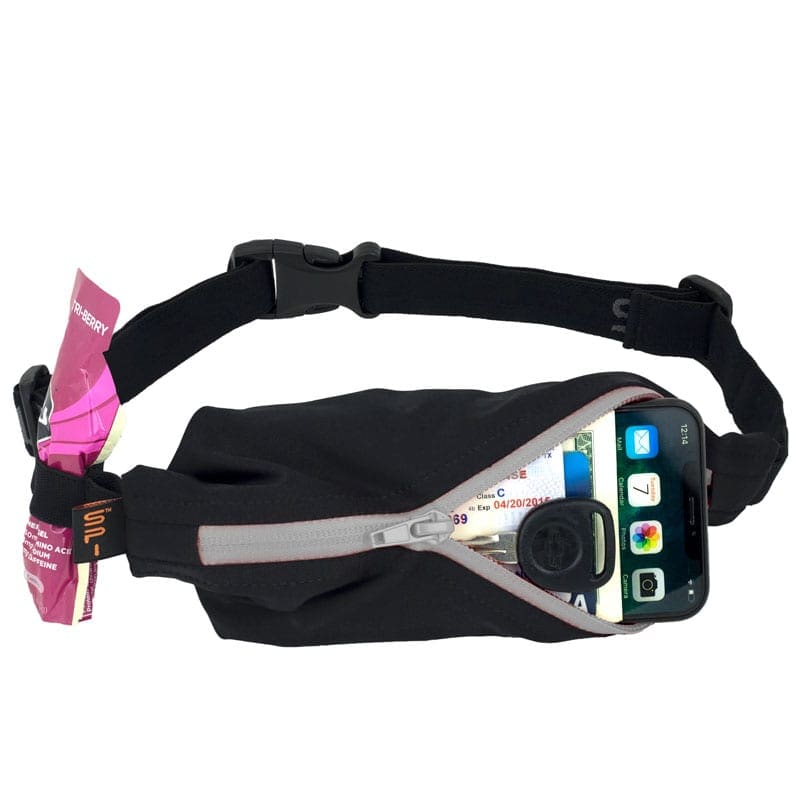
4. Running Belt (SPIbelt)
Carrying your essentials, such as your phone, keys, gels, or ID, can be tricky without the right gear. The SPIbelt (Small Personal Item Belt) is a compact, expandable running belt that keeps your belongings secure and prevents bouncing or discomfort.
It’s lightweight and sits snugly around your waist, making it easy to focus on your run without worrying about your items.
5. Nutrition
Proper nutrition is key to maintaining energy during your long training runs and the marathon itself. Consuming easy-to-digest energy gels can help sustain your endurance and prevent energy crashes. During your training, experiment with different gels to see which ones your body tolerates best.
One excellent option is BPN (Bare Performance Nutrition) energy gels. BPN is the official on-course nutrition partner for the Austin Marathon, meaning their products will be provided at aid stations during the race. Training with BPN gels now ensures that your body is already familiar with the nutrients and fuel you’ll be consuming on race day—eliminating any surprises when it matters most.
6. Hydration
Staying hydrated is essential for any marathoner. During your training runs, ensure you’re drinking enough fluids to stay hydrated before, during, and after your workout. Incorporating an electrolyte drink into your hydration plan is a great way to replace minerals lost through sweat.
As the official hydration provider for the Austin Marathon, BPN offers an excellent range of electrolyte drinks designed specifically for athletes. Consider training with their Electrolyte formula so that your body is well-adapted to the hydration stations you’ll encounter on race day.
7. Extras: Hat, Sunglasses, and Headphones
Don’t overlook the small extras that can make your training more enjoyable. A lightweight, moisture-wicking hat will keep the sun off your face, while running sunglasses will protect your eyes from UV rays. If you enjoy running to music or podcasts, invest in a pair of sweat-proof, wireless headphones designed for running. These extras add comfort and enjoyment to your runs.
The right gear can make a significant difference in your marathon training and race-day experience. From choosing the perfect running shoes at Fleet Feet Austin to incorporating BPN nutrition and hydration into your routine, these essentials will help you train smarter, stay comfortable, and perform your best. Test each piece of gear throughout your training to ensure that you’re ready to run your best Austin Marathon—confident, prepared, and without any last-minute surprises.
